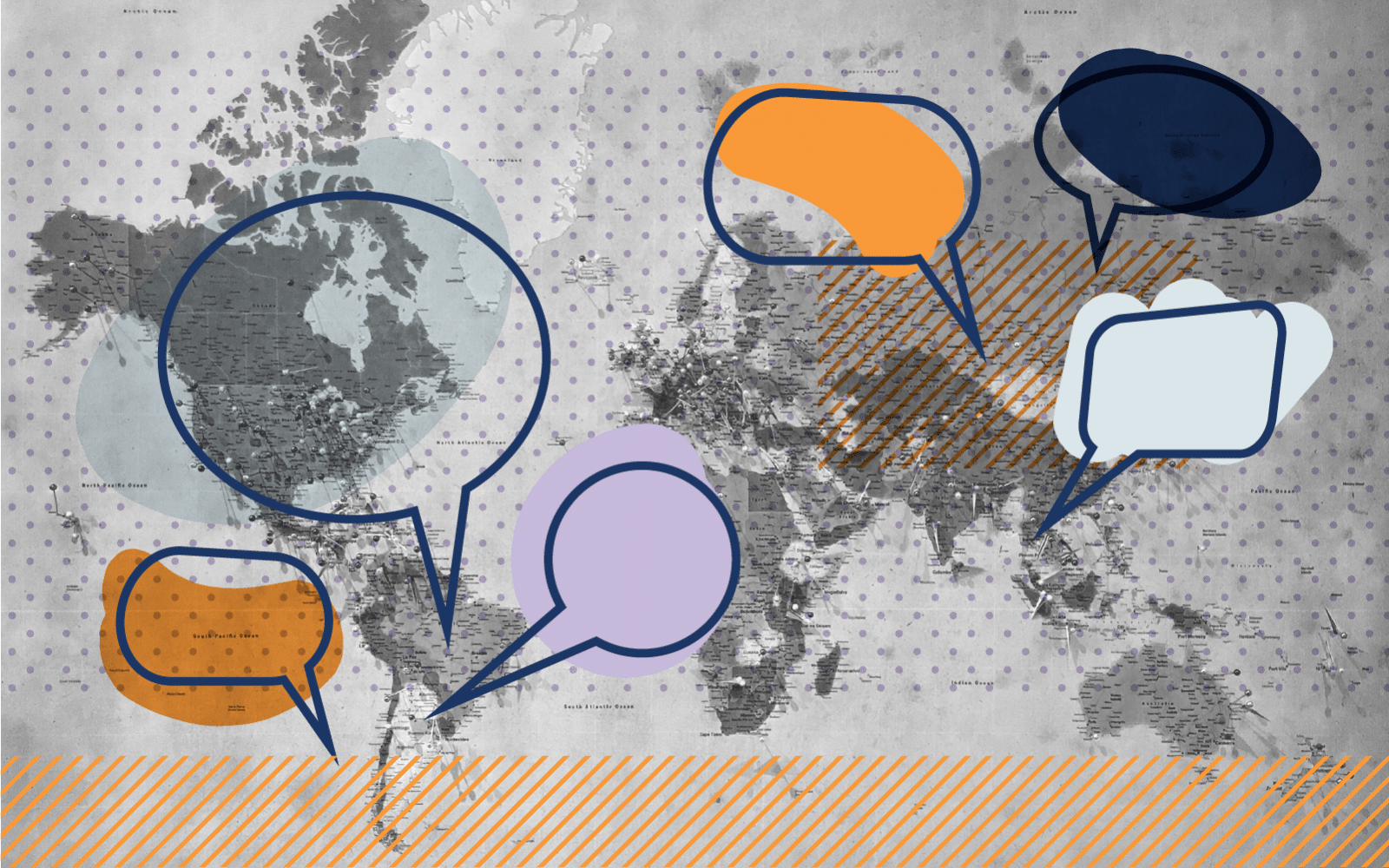For information about the Executive in Residence program visit the EIR program page, or contact us at [email protected].
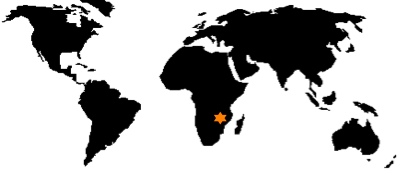
BACKGROUND – MEET THE PEOPLE
EIR Juan Loraschi and host Ashoka Fellow Dorien Beurskens
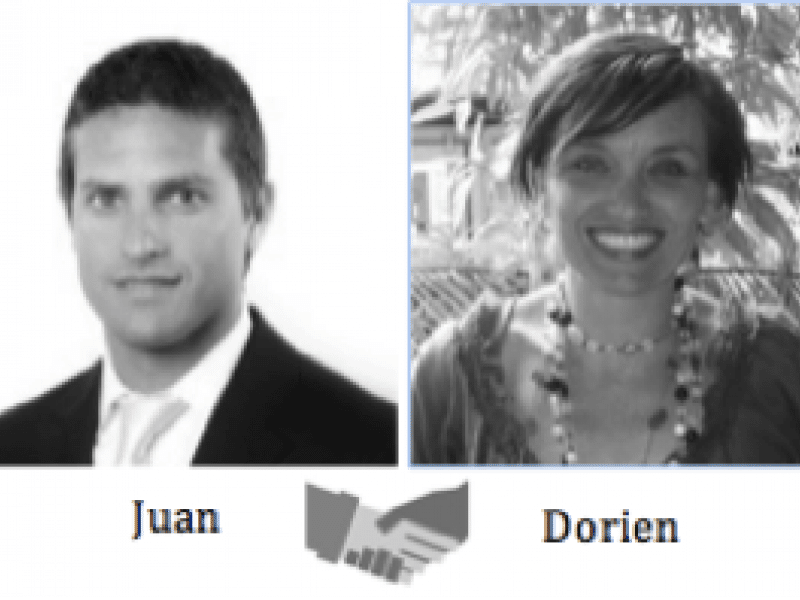
Juan Loraschi, Western Union Regional Vice President, partnered with Dorien Beurskens and her organization, Young Africa (YA). Dorien has developed an affordable way to provide vocational education and training to young people in Southern Africa. She has established training centers that are both learning spaces for students and business hubs for entrepreneurs in the community. Juan provided YA with marketing expertise and training for both the Company’s own management team and the organization’s entrepreneurs. He worked with the management team to understand current practices and recommend how YA might improve its reach and reputation amongst key employers in the area.
BROAD LESSONS & FINDINGS
How did this experience relate to your development plans and how will you apply what you have learnt to your role at Western Union?
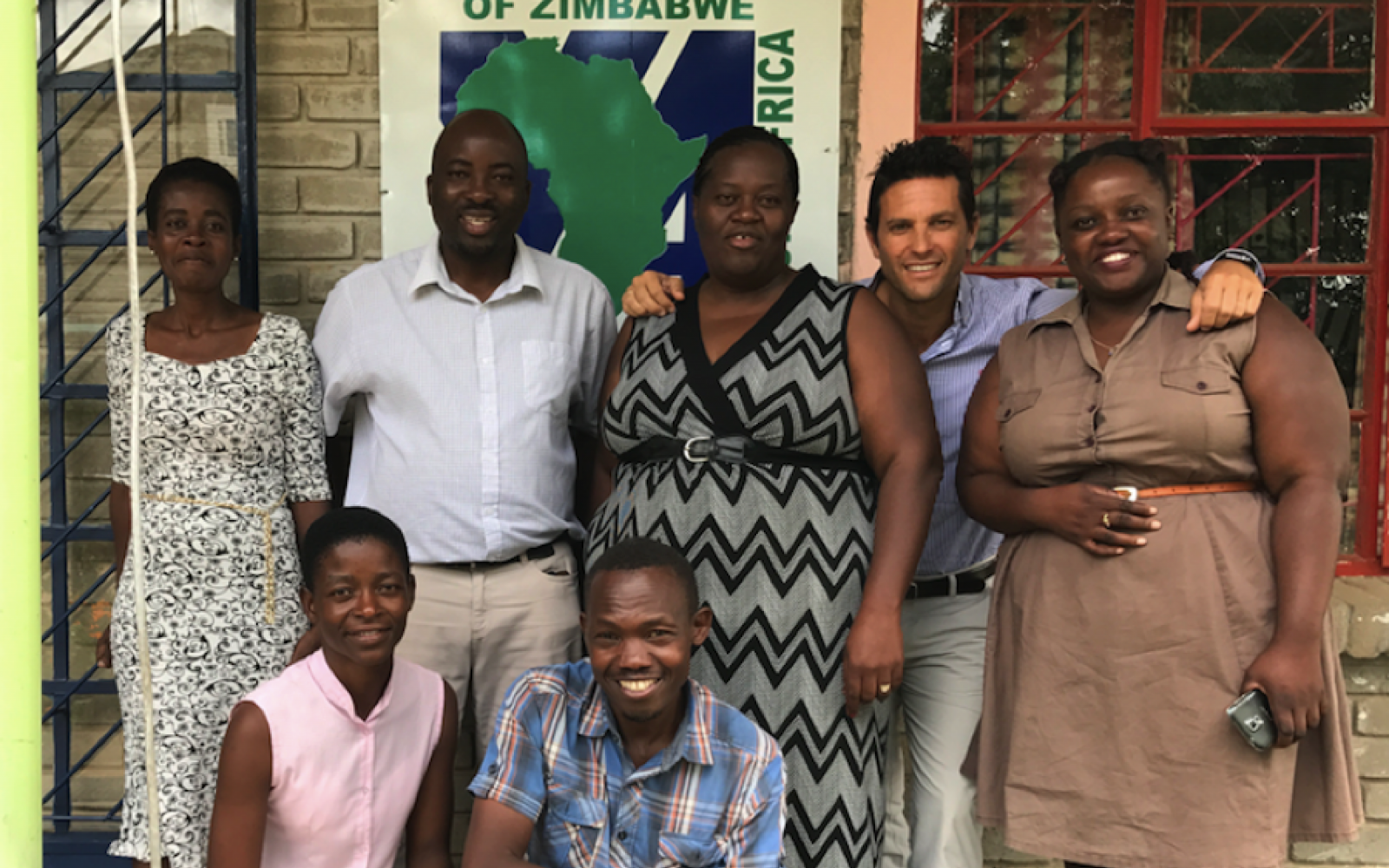
I previously worked on the business side, and the focus of my placement was more on marketing, which is at my origin. I discovered my love for the marketing side, drawn by the strategic thinking behind it. It made me consider how I can inspire people, how I can think differently. I was coming in with a different perspective, which allowed me to see things that others don’t see.
After my experience I realized that I wanted to change my professional role within Western Union. I just moved to a new more strategic area, which is something new for the company, but also something new for me. This new, more strategic position will allow me to accelerate growth and combine what’s happening in the real markets with the corporate side. It enables me to put it all together, go to the market, and accelerate. I don’t have any doubt that the EIR program helped me realize that I have the skills for this new role, and also discover myself by doing it. It triggered me to re-consider my professional role and my value-add. Not only in me, but also in the impact I have in making business decisions.
What’s the most significant way that EIR has impacted your organization (WU)? Or how do you envision it will impact WU’s future business?
For me it was about realizing and discovering the impact that a high profile businessperson can generate in society. If more people from Western Union could have this experience they would be more conscious of how their actions and decisions will impact their life and society.
And on a personal level?
It allowed me to feel a lot of respect and admiration for my wife’s support, as she stayed behind and managed the kids and the family while I was far away for two weeks. It’s a huge responsibility. We were doing this as a family. For me this was an amazing experience and it made me realize more the value of having her in my life. Also with my kids, it allowed me to enjoy the moments that I spend with them much more. If I’m with them, I’m present, whatever it may be. When I was there I disconnected with the digital world. The only connection that I had was with my family. It was amazing. It was like having an inside trip with myself as I was on my own for two weeks. The last time I had this experience to be on my own was when I was 25 years old. I was really impressed by the result.
THE ASHOKA EFFECT – CHANGING MINDSETS
How has partnering with an organization with a different value proposition impacted your view of innovative ways of achieving social impact?
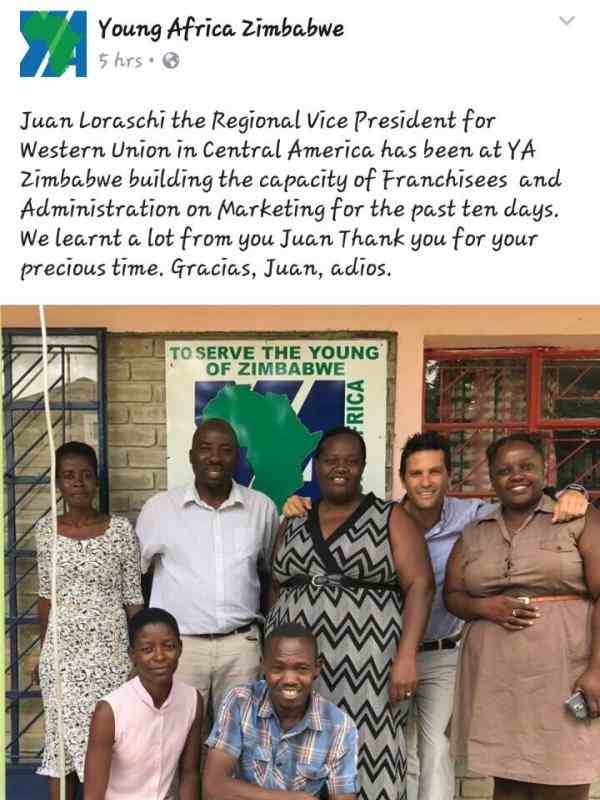
Sometimes organizations require a lot of your time and energy, it’s part of the job. And maybe this becomes your day-by-day. We were talking about YA’s expansion into other countries, and suddenly I said, “Guys, why do you want to have more countries? It’s much better to invest in this country, where you have a base, rather than go to a new country and start from scratch. That is, when you have a limited budget, people, etc. If you don’t have any limitations then go.” It’s about thinking simply. We often over-complicate things. Being in an environment I didn’t know allowed me to keep it really simple, and everyone appreciated that. Stop, breathe, be present, and realize what’s going on. That’s why I use the world present. Often all the distractions in our lives mean that we aren’t present. This mindset- shifting is about being present.
What were the greatest challenges you faced in delivering on the objectives that Dorien and you agreed on before departure, if any, and while in Zimbabwe?
When I arrived there, the reality of the business was completely different to what I had expected. I had to be very honest with them team and tell them, “You need to review your business model. We cannot continue to expand until we generate money.” This was not only an NGO, but also fundamentally a business. They needed to create a sustainable business model through which to survive without donors.
Communication, the english language, wasn’t a problem at all. This was something that surprised me in a good way. Everyone speaks English there. And I had no issue in saying “sorry, I have no idea what you are talking about.” Even with the taxi driver, who drove me everyday for two hours, we had really nice conversations.
WHAT’S NEXT?
Do you envision a continued partnership developing going forward?
I re-designed all of their communication materials once I had finished my placement, and sent them to them about a month ago. I guess they have already printed everything. I’m still especially closely connected with one of the guys from the carpentry department, Lazarus. We speak every two weeks. This has been really important to me as it allows me to stop my day-by-day and spend time with this amazing guy. He inspires me a lot. Chat is the most powerful communication tool, and any day he can say, “Juan, we need to talk.” And I want to take that time to stop my everyday and see how I can help.
What would you say are the best 'qualities' per se of the EIR Program, what makes it so special in your view?
It’s about taking you as a human being, putting you out of your comfort zone, and allowing you to be you. In other programs you are with other people in a room. Here you are alone. You don’t have a coach or peers, or anyone helping you along the way. Here you discover for yourself and you are you. It allows you to connect with yourself and figure out what you need to do, which is important because in the business world you need to make your own decisions. You are always alone in some way, and to make the right decisions you must connect with yourself.
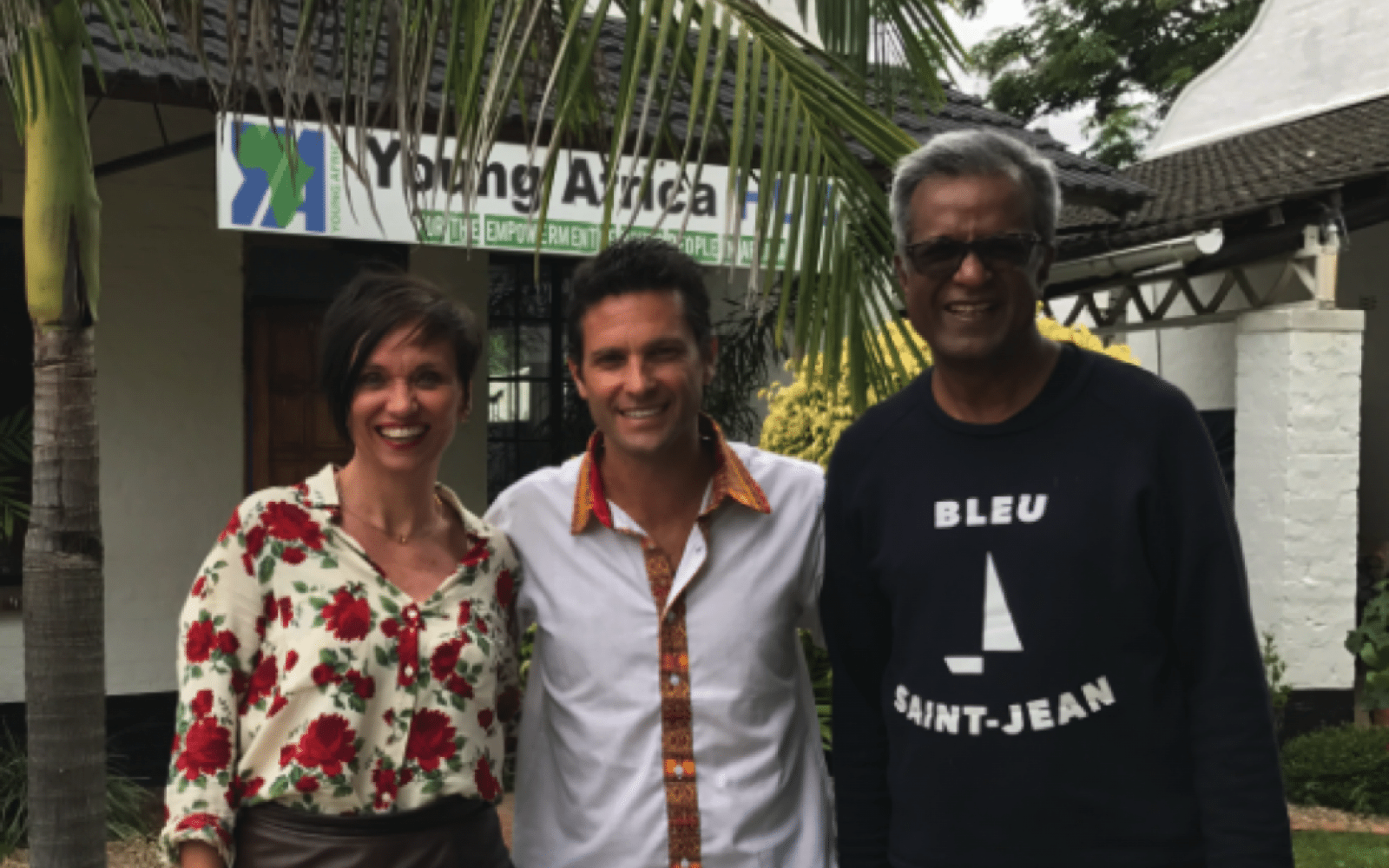
Juan (middle) with Ashoka Fellow and Young Africa founder Dorien (left)
For more information about the Executive in Residence (EIR) program visit the EIR program page, or contact us at [email protected]
